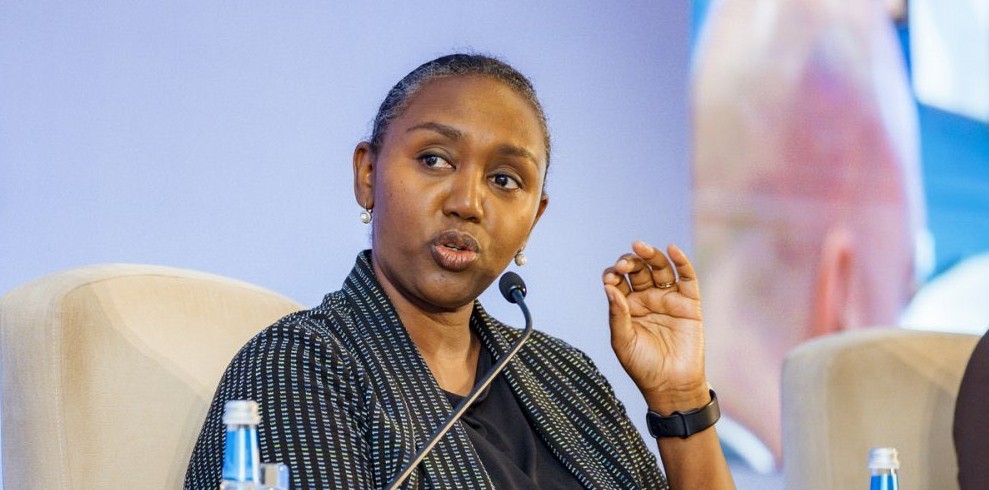Pain for Gachagua as election violence against Ruto critics escalates

Concerns are mounting over the rise in politically motivated violence, prompting election observers to question whether the 2027 polls will be free and fair.
Former Deputy President Rigathi Gachagua is increasingly under pressure, having found himself with a new responsibility at the end of every major political rally—condemning and castigating hired goons attempting to disrupt his events.
The situation has grown so tense that Gachagua now hastens to conclude his engagements before any disruptions occur. On Thursday, during the unveiling of his new political party, the Democracy for Citizens Party, hired thugs descended on the event, wielding stones and crude weapons in an attempt to derail the occasion.
More To Read
- Gachagua withdraws pre-impeachment petitions, focuses on challenging ouster in court
- Crowds scamper for safety as security shoot in the air to disperse goons at Gachagua’s party launch
- High Court suspends Gachagua's impeachment case, awaits fresh direction from CJ Koome
- Gachagua unveils Democracy for Citizens Party, names Cleophas Malala as interim deputy leader
- Gachagua to unveil Democracy for Citizens Party, official launch set for Thursday
- UDA calls Gachagua’s resignation 'theatrics', says he was already removed from party
Concerns are mounting over the rise in politically motivated violence, prompting election observers to question whether the 2027 polls will be free and fair.
Although authorities have launched investigations into the violence that marred the party’s launch, Gachagua has laid the blame squarely on the government.
Interior Cabinet Secretary Kipchumba Murkomen confirmed that an investigation was underway, particularly into reports of unknown individuals firing gunshots during the chaos.
“Some people in civilian clothing drew their firearms and fired in the air. We will investigate to determine who they were and their motives,” Murkomen said.
He further revealed that police had not been formally notified of the event, complicating efforts to deploy adequate security.
“We encourage all political leaders to seek the services of police when organising events,” he advised, calling for greater coordination with security agencies moving forward.
Gachagua, however, directly accused President William Ruto of orchestrating the disruption of his party’s launch. He challenged the President to accept that he has lost the trust and support of Kenyans.
Past incidents
The former deputy president also recounted several other alleged incidents where goons disrupted his functions. He cited a funeral in Limuru, Kiambu County, where individuals under police escort reportedly attacked him.
In another case, he alleged that goons linked to a prominent Mt Kenya politician, allegedly aligned with Ruto, attacked a church event in Nyeri County.
“You sent the leader of an organised criminal gang, whom you’ve deployed in the mountain, to back you. They assaulted my wife and churchgoers during a prayer meeting in Nyeri, desecrating a place of worship,” Gachagua claimed.
He further cited a December 2023 prayer meeting in Nyandarua County, where police allegedly fired tear gas into the crowd. In January 2024, he claimed goons under police escort evicted his children from an office they had leased and operated for five years.
As political temperatures rise ahead of the 2027 general election, Kenya appears to be slipping into a familiar cycle. Political rivals are once again accusing each other of hiring goons and blaming police for either inaction or partiality.
Observers warn that the effectiveness of the National Cohesion and Integration Commission (NCIC) could be a major concern in addressing these issues. The agency has frequently clashed with MPs, who accuse it of being toothless.
Political analyst Samuel Owida told the Eastleigh Voice that political leaders are unlikely to empower the NCIC, as many of them are the worst offenders when it comes to inciting ethnic violence.
“Politicians won’t give NCIC teeth because it would come back to bite them. They are the biggest perpetrators of hate speech and incitement,” Owida remarked.
Civil society organisations have also raised the alarm over the increasing wave of political violence and intolerance as Kenya edges closer to the 2027 elections.
The Kenya Human Rights Commission (KHRC), along with other civic groups, has condemned the resurgence of political goon squads and the weaponisation of public forums to suppress dissent.
Earlier this month, an opinion poll revealed that one in two Kenyans has no confidence in the upcoming general election. Thirty per cent cited political interference as the main reason.
A survey by TIFA indicated that 29 per cent of respondents were concerned about corruption, lack of transparency, electoral fraud, and voter bribery. Seven per cent highlighted violence and insecurity as key threats.
Other issues raised by between 1 and 2 per cent of the 2,024 respondents included inadequate preparation time for the 2027 election, historical rigging, and failures in electoral technology.
According to communications expert Elias Mokua, one of the key lessons from Kenya’s electoral history is the lack of timely and credible preparation for elections.
“Since 2007, Kenya has struggled with electoral tallying, result transmission, and managing election-related conflicts. These shortcomings have repeatedly led to disputed results and national unrest,” said Mokua.
Top Stories Today













































